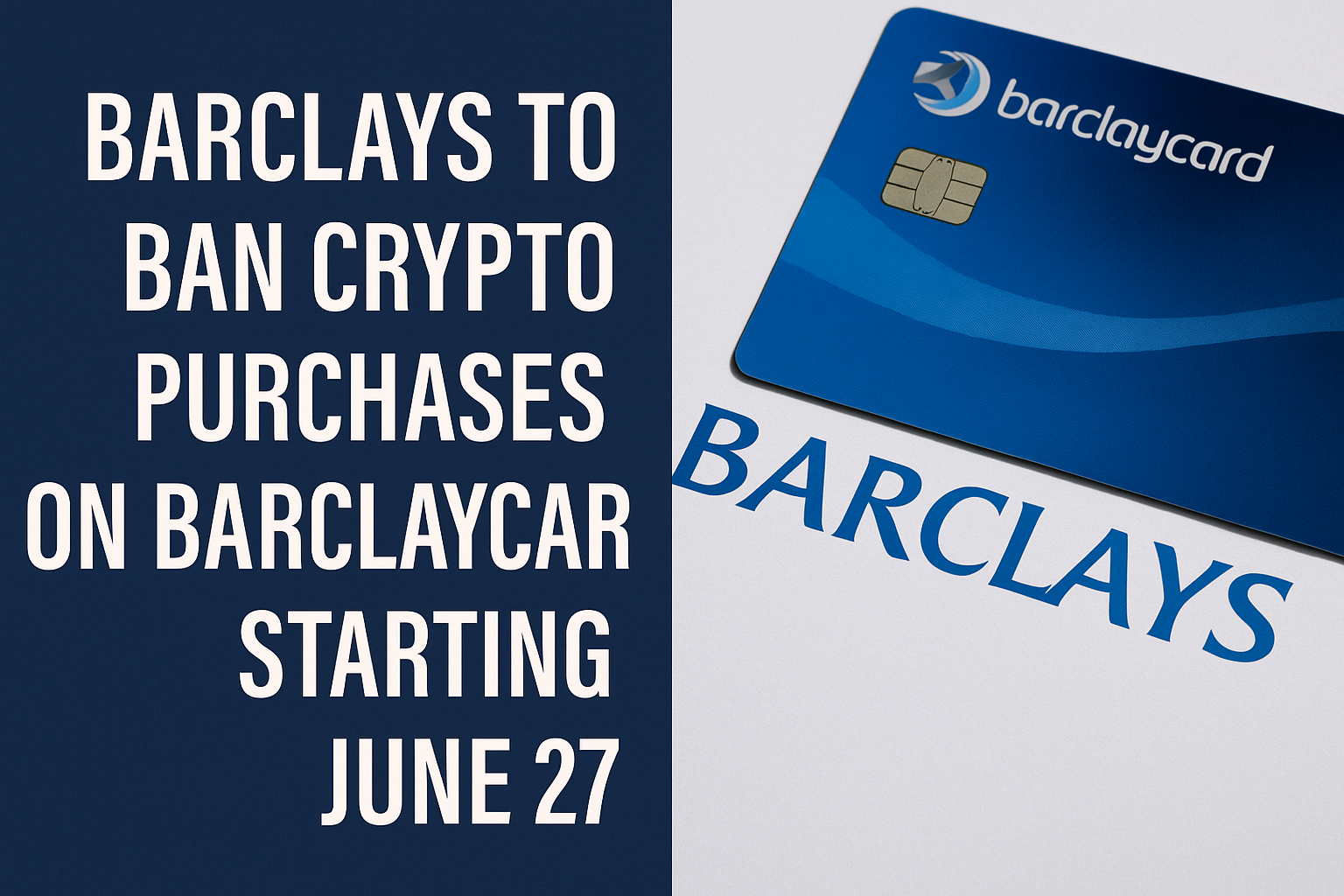
In a surprising yet increasingly familiar move, Barclays Bank has announced that, effective June 27, 2025, it will block all cryptocurrency-related purchases made using its Barclaycard credit cards. This decision adds Barclays to the growing list of traditional financial institutions that are tightening their stance on consumer crypto transactions, citing concerns over “security, fraud, and regulatory compliance.”
The decision was communicated via email to Barclaycard customers earlier this week and confirmed in a statement published on the bank’s official website today. The ban will affect purchases made on cryptocurrency exchanges, peer-to-peer trading platforms, and any services flagged under the “digital currency” merchant code.
Barclays’ Rationale: Risk Management or Market Caution?
Barclays has stated that the ban is part of its ongoing effort to protect customers from the volatility and risks inherent in crypto markets. In its press release, the bank cited an increase in fraud cases, growing concerns over money laundering, and ongoing regulatory ambiguity in the UK and EU as primary reasons for the decision.
“We continuously review how customers use our products. We’ve identified cryptocurrency transactions as high-risk, particularly through credit purchases, and we are implementing this restriction as a protective measure,” said a Barclays spokesperson.
Notably, Barclays has stopped short of blocking crypto-related bank transfers or debit card usage, suggesting the policy is narrowly focused on credit card transactions—which could potentially leave users in debt from speculative investments.
Industry Reaction and Public Backlash
The crypto community has been quick to react, with many users accusing Barclays of overreach and paternalism. On social media platforms like X (formerly Twitter) and Reddit, users voiced concerns about freedom of financial choice and the implications for broader crypto adoption in the UK.
“Barclays is treating us like children,” wrote one Redditor. “If someone wants to buy Bitcoin on their credit card, that’s their decision, not the bank’s.”
However, consumer watchdog groups and some analysts have welcomed the move, noting that using borrowed money to speculate on volatile digital assets often leads to financial distress. A 2024 report from the UK Financial Conduct Authority (FCA) found that one in five retail investors who bought crypto on credit ended up defaulting on payments within 12 months.
Part of a Global Trend
Barclays’ decision mirrors a broader global trend among legacy financial institutions. Over the past two years:
JPMorgan Chase and Citigroup have blocked crypto purchases via credit cards in the U.S.
Banco Santander and HSBC have implemented similar policies in Spain and the UK.
Australian banks, including Commonwealth Bank, have begun limiting exposure to crypto-related activity as well.
Analysts believe these moves are both reactive and strategic: reactive in the face of tightening regulations, and strategic as traditional banks prepare to launch their own tokenized asset platforms and CBDC (central bank digital currency) interfaces.
What It Means for UK Crypto Users
While Barclays’ ban is not a death blow for retail crypto activity in the UK, it adds friction. Users will now need to use debit cards, bank transfers, or third-party payment methods to fund crypto purchases—many of which can be slower, costlier, or subject to additional verification.
Crypto exchanges operating in the UK, such as Kraken, Coinbase, and Bitstamp, are expected to issue advisories to users in the coming days regarding alternative funding methods.
Conclusion
Barclays’ ban on crypto purchases via Barclaycard is a significant development in the ongoing tug-of-war between traditional finance and the decentralized crypto movement. As regulators grapple with how to structure digital asset policy frameworks, banks like Barclays are moving proactively to control exposure and mitigate risk.
The long-term impact of such restrictions will depend on how crypto platforms adapt and whether decentralized finance (DeFi) solutions can fill the access gaps left behind by traditional players.